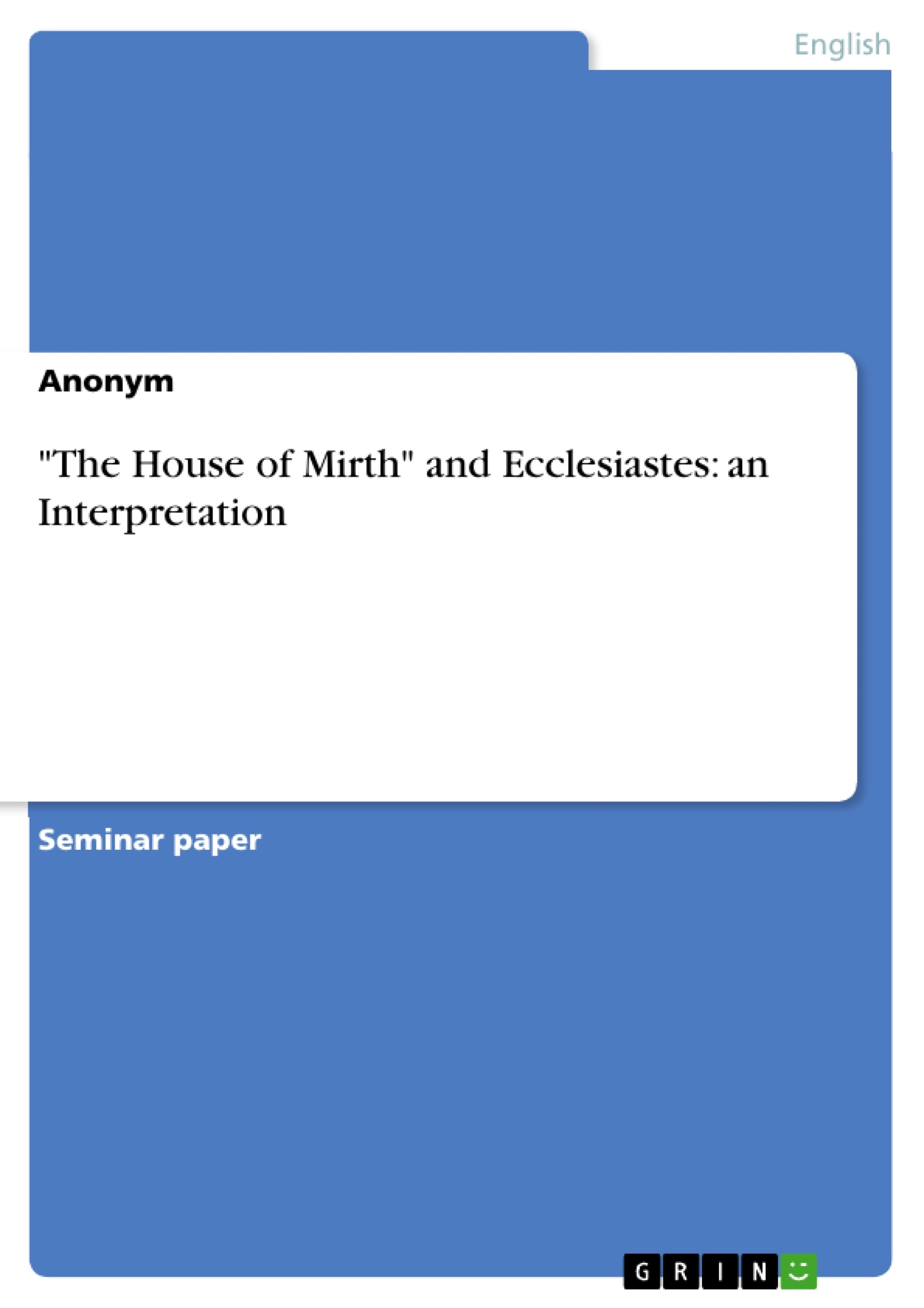Introduction
“The heart of the wise is in the house of mourning; but the heart of fools is in the house of mirth.” It was this quote from Ecclesiastes 7:4 that gave name to Edith Wharton′s novel “The House of Mirth.” Taking for granted that the author did not choose the title of her work deliberately, it surely might be interesting to have a closer look at why the author chose to name her work the way she did. Therefore, the world view and philosophy depicted in Ecclesiastes shall be inspected. Furthermore, it shall be analyzed whether and how the characters and the plot of the novel are affected by the ideas expressed in Ecclesiastes.
Table of Contents
- Introduction
- Ecclesiastes / Qohelet
- A short Introduction
- Wisdom
- Wealth
- "the works that are done under the sun"
- Conclusion
- Interpretation
- Interpretation: the House of Mirth
- Lily Bart and Khayyam, Edith Wharton and the Preacher: a Parable?
- Interpretation: the House of Mourning
Objectives and Key Themes
The main objective of this paper is to analyze the connection between Edith Wharton's novel “The House of Mirth” and the book of Ecclesiastes. The paper will explore the world view and philosophy depicted in Ecclesiastes and how it may have influenced the characters and plot of the novel. Specifically, the paper will investigate whether and how the novel can be seen as a parable or allegory for the ideas presented in Ecclesiastes.
- The pessimistic outlook on life and existence in Ecclesiastes
- The cyclic view of history and the universe as presented in Ecclesiastes
- The relationship between wisdom, sorrow, and death in Ecclesiastes
- The themes of vanity, vexation of spirit, and the futility of human endeavor
- The application of Ecclesiastes’ ideas to the characters and plot of "The House of Mirth"
Chapter Summaries
The introduction sets the stage for the paper by discussing the connection between the title of Edith Wharton's novel "The House of Mirth" and the quote from Ecclesiastes 7:4. This quote, "The heart of the wise is in the house of mourning; but the heart of fools is in the house of mirth," forms the basis for the paper's exploration of the relationship between the novel and the book of Ecclesiastes.
Chapter 2 provides a brief introduction to the book of Ecclesiastes, also known as Qohelet. The chapter highlights the controversial nature of the text due to its pessimistic conclusions, and it introduces the figure of the Preacher, who is believed to be the author of the book. The chapter discusses the Preacher's cyclic view of history and the universe, his observations on the nature of life and death, and his pursuit of wisdom and wealth in order to find meaning. The chapter concludes by foreshadowing how the ideas presented in Ecclesiastes will be applied to the characters and plot of "The House of Mirth."
Keywords
The key themes and concepts explored in this paper include: Ecclesiastes, Qohelet, Edith Wharton, "The House of Mirth," pessimism, cyclic view of history, vanity, vexation of spirit, futility of human endeavor, wisdom, sorrow, death, and allegory.
- Arbeit zitieren
- Anonym (Autor:in), 2003, "The House of Mirth" and Ecclesiastes: an Interpretation, München, GRIN Verlag, https://www.grin.com/document/24684



